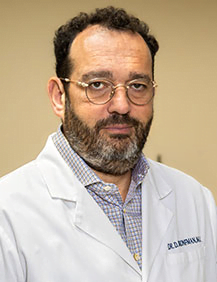The Only NYS Approved by
DOH Surgical Facility
*Same Day Appointments & Walk-Ins Welcome
The Only NYS Approved by
DOH Surgical Facility
*Same Day Appointments & Walk-Ins Welcome

Healthy reproductive organs are an important aspect of a woman’s life, not only because they help her procreate but also because they are imperative to sexual health. A sexually active woman is always at a risk of STDs or sexually transmitted diseases, a set of extremely difficult to treat, long-lasting, and equally uncomfortable infections so its easier to hsome STDs prevention. Statistically, approximately 19 million or more Americans suffer from STDs every year.
Infections with Sexually Transmitted Diseases (STDs) can cause major and sometimes long-term damage to the female reproductive organs. Some STDs like gonorrhoea may result in infertility (Read also: Infertility in Women), while others like HIV may lead to more deadly outcomes, while yet others like the HPV may lead to cervical cancer. Hence, knowing how to protect yourself from the bothersome STDs is tremendously important.
STDs are sexually transmitted diseases that spread through direct or indirect contact with an infected individual. These diseases may spread through any form of sexual intercourse, including vaginal, oral and anal. Although, STDs are more prone to spread through sexual contact, you may also want to have STDs prevention by not using towels, undergarments, or other personal items previously used by an infected person. However, the primary cause of their spread is sexual contact and so when treating a patient suffering from any STD, the sexual partner requires a course of palliative therapy too. This prevents the vicious cycle of the uninfected partner contracting the STD and passing it back to the infected partner who may have been cured with appropriate treatment only to get it back.
Here’s a list of some of the common STDs:
Luckily, avoiding STDs to maintain a healthy reproductive and sex life isn’t very difficult. Here’s how:
If your partner has an STD and you still wish to have sex with him, speak to your gynaecologist about measures to avoid contracting the infection from him. Strict and appropriate use of barrier contraceptives like condoms and dental dams, in addition to appropriate palliative medications should help you avoid contracting the infection from your partner.

Dmitry Bronfman, MD, is a board-certified gynecologist who specializes in all aspects of contemporary women’s health, preventive medicine, pelvic pain, minimally invasive and robotic surgery, and general, adolescent, and menopausal gynecology.
Brooklyn Abortion Clinic